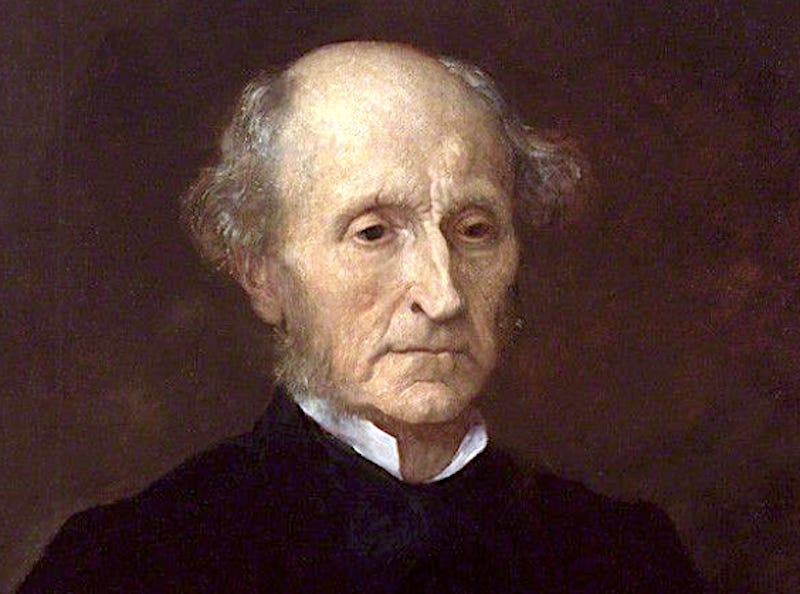Video and Podcast Resources On John Stuart Mill's Utilitarianism
ten lectures on this short but important and influential work in ethics
John Stuart Mill’s short work Utilitarianism is one that I have taught in my various classes many times, going all the way back to my first Ethics class at the very start of my teaching career in 1999. It’s always a pleasure to do so because I enjoy rereading his excellent and provocative prose, and thinking along the lines of the arguments and distinctions that he sets out.
I’m not myself a utilitarian in ethics, but I do think it is an important and often quite useful approach in ethical decision-making. By the time that Mill is writing, it has become what we can call an explicit tradition in ethics. John Stuart Mill’s father, John Mill, was one of the first generation of those who called themselves “utilitarians”, and he attempted to bring up his child along utilitarian lines, drawing upon the thought of his friend, Jeremy Bentham, who can rightly be called the “father of utilitarianism”.
Mill encountered and thought deeply about some of the challenges raised against the recently formed utilitarian doctrine and movement, and also was well-versed enough in other common approaches in ethics. So his work titled Utilitarianism doesn’t just reinterpret their moral doctrine. It responds to those challenges and objections brought up against utilitarianism, often pursuing the argumentative strategy of showing that seeming rival theories actually assume or use utilitarian principles in their own approaches.
Perhaps the idea most commonly discussed that is drawn from Mill’s Utilitarianism is the distinction between qualitatively higher and lower pleasures for human beings, along with the implication that there could also be qualitatively higher and lower pains. You might have encountered his famous verdict:
It is better to be a human being dissatisfied than a pig satisfied; better to be Socrates dissatisfied than a fool satisfied. And if the fool, or the pig, is of a different opinion, it is only because they only know their own side of the question.
But there are a number of other important ideas that he articulates in the work, and I’ve produced lectures in both video and podcast format covering all of them. I use these in my own classes as resources provided for my students, and as I’ve learned over the years, quite a few other students, lifelong learners, and professors rely upon them as well.
Here they are:
Utilitarianism As Basis For Moral Theories - watch video | listen to podcast
Responses To Criticisms Of Utilitarianism - watch video | listen to podcast
Qualitatively Higher And Lower Pleasures - watch video | listen to podcast
Why People Do Not Appreciate Higher Pleasures - watch video | listen to podcast
The Ideal Judge Of Pleasures - watch video | listen to podcast
Utilitarianism, Sanctions, And Duty - watch video | listen to podcast
Happiness, Goods, And Virtue - watch video | listen to podcast
Five Conceptions Of Justice - watch video | listen to podcast
What Having A Right Means - watch video | listen to podcast
Justice And Utility - watch video | listen to podcast
So there they are. 10 lectures in both video and podcast format that will walk you through each key concept in John Stuart Mill’s work Utilitarianism. I hope you find them useful for studying and understanding the work!


